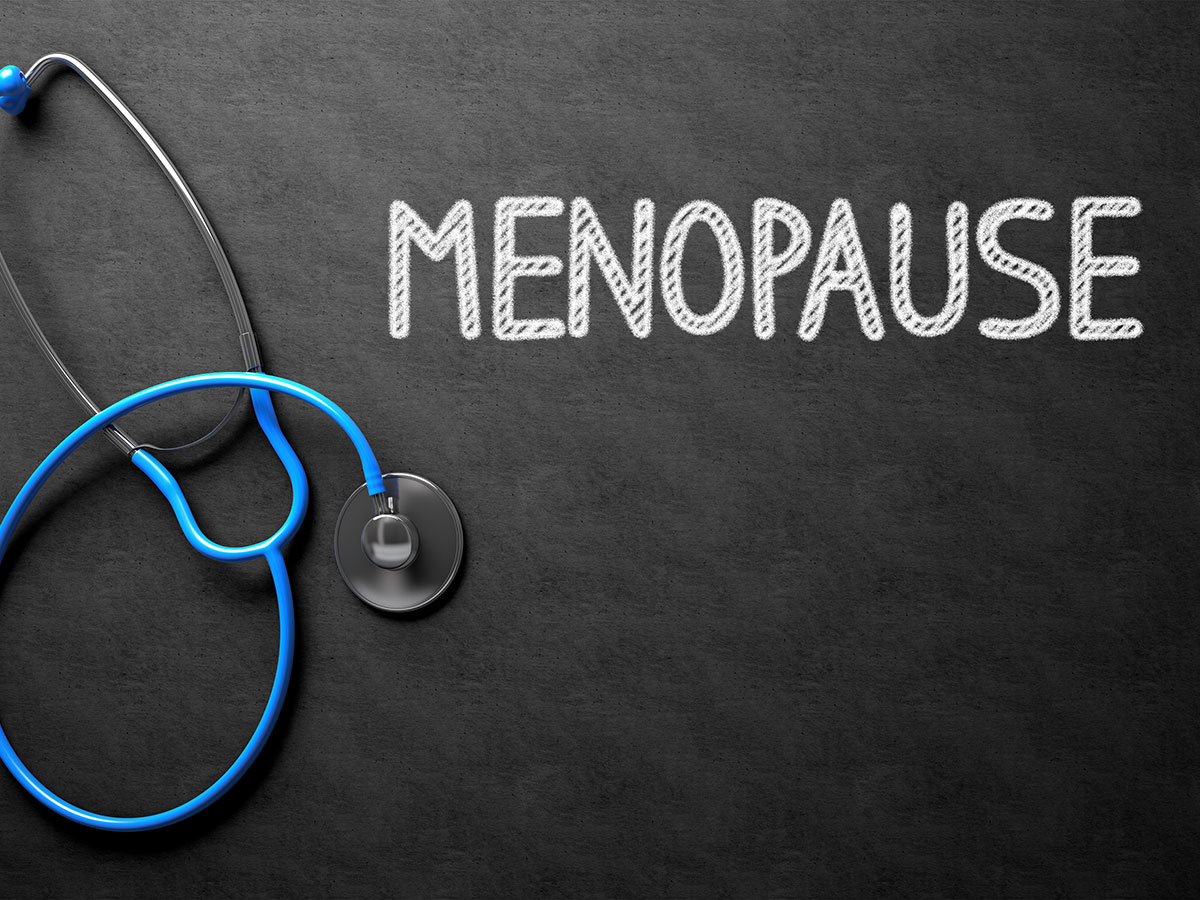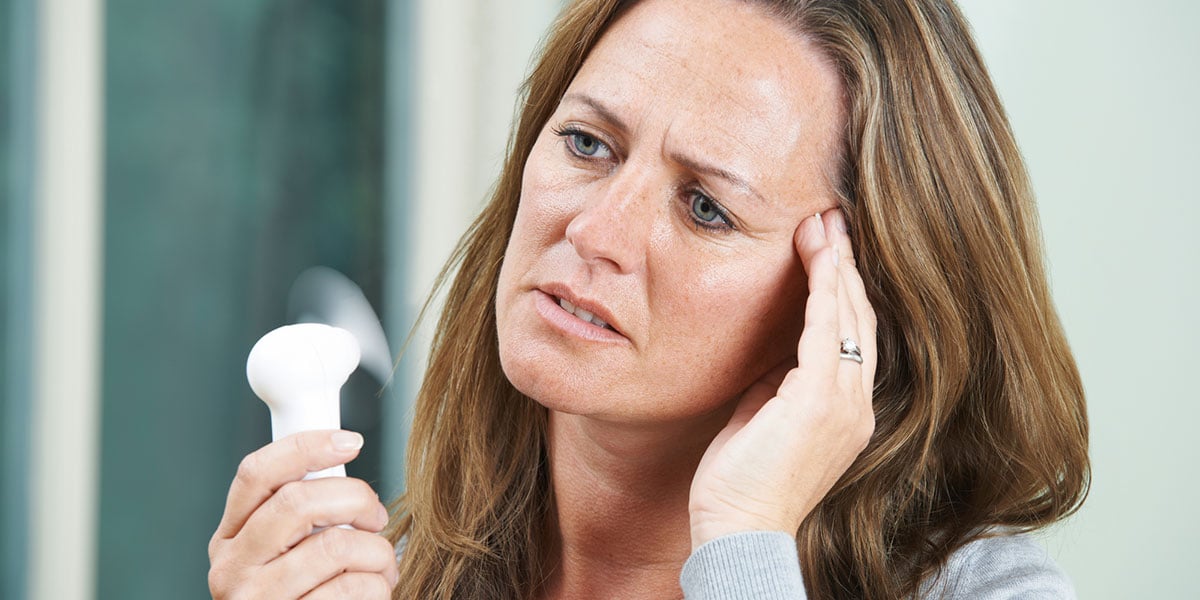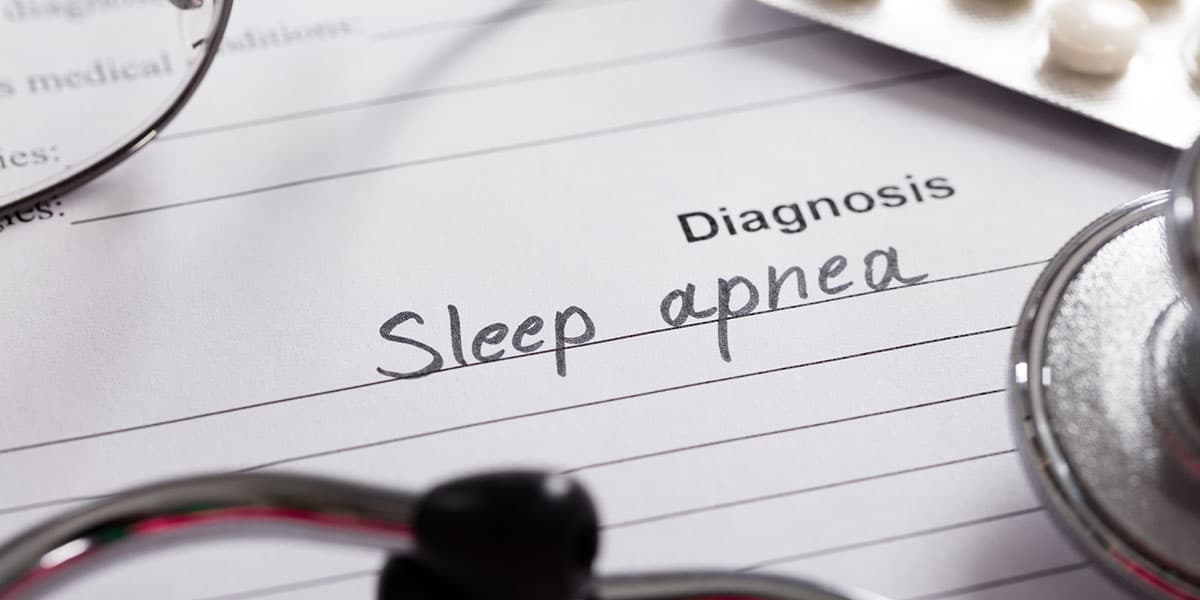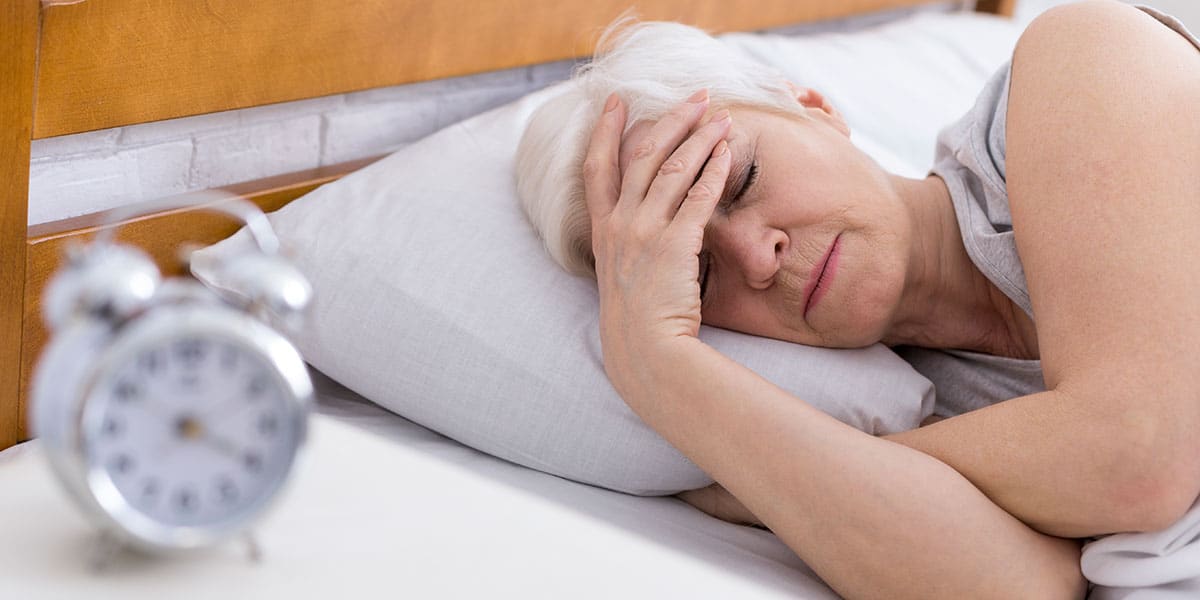Although menopause affects every woman differently, many of its hallmark symptoms disrupt sleep. Hot flashes are the most common symptom, but the arrival of menopause often means a greater risk of sleep apnea, insomnia, anxiety and depression. The good news is that menopause is a natural part of life and much of the associated discomfort can be treated and relieved, including the sleep disruptions.
In this article, we’ll discuss how menopause disrupts sleep and what steps can be taken to alleviate these menopause-related sleep problems.
What is Menopause?
Menopause marks the end of a woman’s reproductive years and usually begins somewhere between the ages of 45 and 55. On average, menopause lasts about seven years but can be twice as long for some women. Common symptoms include hot flashes, fatigue, loss of sex drive, night sweats, moodiness, forgetfulness, insomnia, weight gain and stiffness.
Menopause symptoms stem from a decline in the hormones: estrogen, progesterone and, yes, testosterone. These hormones are responsible for regulating the menstrual cycle and reproductive functions. The hormones also affect sleep cycles, mood, sex drive and cognitive functioning. So it’s easy to see how the side effects of menopause correspond to these hormonal changes.
The decrease in hormones is also at the root of many of the menopause-related sleep disruptions. Estrogen and progesterone play a role in the production of melatonin, a hormone that regulates the sleep-wake cycle. This loss is compounded by the fact that melatonin production declines with age regardless of your gender. Furthermore, progesterone also helps to facilitate sleep and is believed to help regulate body temperature.
Related: How Sleep Affects Your Hormones
Why Does Menopause Wake Me Up?
The symptoms and the sleep problems associated with menopause often begin during perimenopause, the time just prior to menopause when periods may become irregular and the body’s estrogen levels begin to decline. The sleep disturbances may occur at the beginning of perimenopause and can last until the end of menopause with some problems persisting even longer.
How menopause and perimenopause affects an individual’s sleep will vary from person to person, but there are several well-known sleep problems associated with menopause.
Three Ways Menopause Disrupts Sleep
Hot Flashes and Night Sweats
Hot flashes are a sudden feeling of intense heat, usually focused around the head, neck and chest area. Hot flashes are internally generated, which creates unique challenges when studying the origins. Although it is still unclear as to what exactly causes them, they are likely connected to the changes in estrogen and progesterone levels.
Hot flashes are one of the most common symptoms of menopause. Over eighty percent of women experience them during menopause. When they happen during sleep, they are called night sweats, and it’s not unusual for someone with menopause to wake up during a hot flash drenched in sweat. Needless to say, night sweats often disrupt a good night’s sleep.
Hot flashes related to menopause aren’t dangerous, but they are uncomfortable and can last for several years. While there are treatments available for women with severe hot flashes and night sweats, there are a few lifestyle changes that may help reduce their severity and frequency.
Tips to Reduce Hot Flashes at Night
Eliminate Caffeine and Hot Beverages at Night: Although caffeine is most often associated with hot beverages like coffee and tea, it’s contained in soda, chocolate and ice cream. Caffeine is linked to hot flashes in perimenopausal and menopausal women, and avoiding foods and beverages that contain caffeine later in the day may help reduce the onset of hot flashes.
Quit Smoking: It’s long been established that smoking cigarettes is unhealthy, but one study found that women who smoke are at greater risk of hot flashes, especially if they carry specific genes for estrogen metabolism and environmental sensitivity.
Limit Alcohol Consumption: Alcohol can cause night sweats in all people at any age, but alcohol can especially worsen night sweats in menopausal women.
Avoid Spicy Foods: Spicy foods raise the body’s core temperature and are a well-known trigger for hot flashes.
Manage Stress: Anxiety is commonly associated with menopause. We discuss it more in depth later related to insomnia, but anxiety is also a known trigger for hot flashes.
Adopt ways to better manage stress and you may experience relief from your night sweats. Yoga, breathing exercises and meditation are all great ways to cope with anxiety.
Related: The Troubling Connection Between Stress and Sleep
Maintain a Healthy Weight: Overweight women tend to suffer more severe hot flashes. Regular exercise helps not only with weight loss, but it has a side benefit of helping to reduce anxiety.
Additionally, a healthy diet can help combat menopause-related weight gain.
Create a Cool Sleep Environment: Start by lowering the temperature before bed, even if it’s a bit colder than you like it.
Dress in comfortable, loose and layered clothing, so clothing can be easily removed and adjusted throughout the night. Also, layer your blankets appropriately for the same purposes.
Get a bedside fan or install a remote control ceiling fan in your bedroom.
Finally, you can invest in technology, such as the Chilisleep system, which is a climate controlled mattress pad that can regulate temperature and keep you cool.
Sleep Apnea
What is Sleep Apnea?
Sleep apnea occurs when the airway becomes partially or fully obstructed by soft tissues (tonsils, tongue, uvula, etc.) in the throat and mouth during sleep.
The obstruction makes it hard for the body and brain to get enough oxygen, so the brain uses epinephrine (adrenaline) to wake the body up enough to clear the obstruction.
This can happen several times throughout the night, and oftentimes, the sleeper isn’t aware it is happening at all.
Signs and Symptoms of Sleep Apnea
If you’re tired throughout the day although you seemed to sleep 7 or 8 hours, it could be a sign of sleep apnea. Snoring, morning headaches and/or dry, sore throats are other common signs.
Lack of oxygen during sleep can damage the blood vessels and increase blood pressure. Left untreated, sleep apnea can lead to heart disease, stroke, type 2 diabetes and other cardiovascular problems.
Why Does Sleep Apnea Increase in Women During Menopause?
It’s estimated that nearly one half to two-thirds of post-menopausal women suffer from sleep apnea.
During menopause, estrogen levels decrease. One of the positive effects estrogen has on the body is that it helps keep muscles supple and firm, including the throat muscles. When estrogen levels dip, women become much more likely to develop sleep apnea.
Menopause is also linked to weight gain which increases the likelihood of sleep apnea because fat adds weight to the neck which can press down on the airway during the night.
Related: 11 Things Women Should Know About Sleep Apnea
How to Treat Sleep Apnea
Sleep Apnea is most often and most successfully treated with continuous positive airway pressure (CPAP) therapy which keeps the airway open during sleep.
Although sleep apnea is a serious medical disorder that requires treatment by a sleep professional, there are actions a woman can take to help reduce the severity of her sleep apnea.
Actions to Help Decrease Severity of Sleep Apnea
Quit Smoking: Smokers are three times more likely to have obstructive sleep apnea than non-smokers.
Avoid Alcohol: Alcohol is a muscle relaxant which makes obstruction more likely.
Maintaining a Healthy Weight: Weight puts additional pressure on the air passage during sleep. Also, lack of sleep makes weight gain more likely due to disruption in the hormones ghrelin and leptin which make you feel hungry and full. Sleep apnea can cause weight to spiral out of control if not properly managed.
Talk to Your Doctor About Your Medications: Some medications make sleep apnea worse. If you’re concerned you may have sleep apnea, consult with a professional. If diagnosed, talk to your doctor about any medication you’re currently taking to make sure it isn’t worsening your apnea.
Take Care of Your Allergies: Nighttime allergies can cause the tissue in your head and neck to swell, making obstruction more likely. So ask your doctor about the best ways to take care of them.
Insomnia
Insomnia and Women
Insomnia is a common sleep problem that often begins during perimenopause, continues into menopause and lasts well into the post-menopause years.
Over one quarter of women will have insomnia severe enough to disrupt their daily lives during menopause or perimenopause. The severity and likelihood of hot flashes have also been linked to many cases of insomnia. However, anxiety and depression were also pegged as culprits.
What is Insomnia?
Insomnia occurs when one has trouble falling asleep at night which lasts more than a half hour. However, insomnia can also be characterized as waking up often or too early and the inability to fall back asleep. People with insomnia are often unhappy with both the lack of and poor quality of their sleep.
Health Risks Associated with Insomnia
Like many sleep disorders, insomnia is not immediately dangerous, but if left untreated, it can have long-term consequences including heart disease, diabetes, high blood pressure, stroke and a decrease in lifespan. More immediately, it can increase the risk of car accidents due to drowsy driving.
Menopausal women with insomnia often suffer from anxiety and/or depression. Insomnia is often comorbid with depression and anxiety, and experiencing one exacerbates the other.
The Complicated Relationship Between Menopause, Insomnia, Anxiety and Depression
Menopause increases the likelihood of both anxiety and depression and both conditions increase the risk of insomnia.
Women and Anxiety
Although many women won’t experience mood disorders during menopause, studies show that nearly a quarter of women will struggle with regular anxiety during menopause. And over half report infrequent bouts of anxiety.
There isn’t much evidence to suggest that in and of itself menopause is the root cause of this depression or anxiety, yet fluctuating hormones and the general life changes that women face during midlife (e.g. the kids leaving the house, growing older, loss of fertility) may contribute to feelings of anxiety and increase their likelihood. Women who have had anxiety problems or postpartum depression are at the greatest risk of suffering from mood problems during menopause.
Signs of Anxiety
If you’re experiencing anxiety, you likely know it. Common signs include racing thoughts, trembling, palpitations, insomnia, inability to focus, excessive fear or worry, restlessness and irritability.
Women and Depression
Additionally, women with no history of depression were twice as likely to experience depression when they entered perimenopause. It’s estimated that about twenty percent of women will experience depression during menopause. Again, the depression may not be caused by menopause, but menopausal women are at higher risk of depression for many of the same anxiety-related reasons.
Depression can seemingly cause insomnia and be caused by insomnia. Insomnia sufferers are 10 times more likely to have depression, and people with insomnia who hadn’t had depression prior are at increased risk of developing depression (and/or clinical anxiety) as their sleepless nights continue.
Signs of Depression
Depression is often expressed as feelings of sadness or hopelessness, lethargy, fatigue, loss of appetite, irritability, insomnia, restlessness, general loss of interest and social isolation.
Related: The Surprising Connection Between Sleep And Mental Health
How to Help Alleviate Insomnia
Reduce Symptoms of Hot Flashes: Hot flashes are often an underlying cause of insomnia during menopause, although they certainly aren’t the only cause. Many of the solutions mentioned above for alleviating hot flashes might also help with insomnia.
Create a Good Sleep Environment: You want your bedroom to be a cool, quiet place. Even if you don’t experience hot flashes, a cooler temperature is conducive to better sleep. Sixty-five degrees is the optimal temperature.
Keep your Bedroom Dark: If a nearby street light is creating too much light coming through the window, invest in blackout curtains. Additionally, lights from computers, phones and laptops can be potentially damaging to your sleep. To prevent this, stop using your electronic devices at least an hour before bed. Alternatively, you can use blue light blocking glasses or screen protectors, such as those from Swanwick Sleep and Ocushield.
Finally, Keep Your Bedroom Quiet: If you sleep next to a busy street, ear plugs or a white noise generator might help block out the noise.
Use Your Bed for Sleep: Your bed should be exclusively used for sleeping. Don’t eat, pay bills or surf the net from your bed. Your mind will begin to associate it with these other activities and not with sleep.
Maintain a Healthy Diet and Exercise: Diet and exercise work wonders for almost everything. A healthy diet and regular exercise have been linked to better sleep. They also help reduce the symptoms of anxiety and depression which increases the risk of insomnia.
Limit Naps: Naps may seem like a good way to catch up on lost sleep, but they might also inhibit your ability to sleep at night. Avoid them, especially later in the day.
Get Ready for Bed: Going to bed isn’t like flipping a switch. It’s something that is best eased into gradually. Try engaging in relaxing activities like reading or taking a nice, warm bath before bedtime. It’s best to avoid screens because their light can interfere with sleep.
Manage Stress: Yoga, meditation and breathing exercises are all methods of self-care for anxiety and depression. However, if your symptoms are severe, it may be best to seek professional help.
Eat and Drink Earlier: Eating a big meal before bedtime can impair sleep quality. It’s best to eat your last meal of the day two to three hours before bed. Any later, and you’re risking an upset stomach. Also, if you often wake up and need to urinate, you might reconsider how much you drink right before bed. Keep in mind there are medical conditions (like diabetes) that may make this tip inadvisable, so discuss it with your doctor first.
See a Doctor, Sleep Specialist or Therapist: If you’re suffering from insomnia, depression, anxiety or a combination of the three, make an appointment to see a doctor, sleep specialist or a therapist. As stated earlier, these issues tend to compound, so getting help with one problem might alleviate the other.
Get Good Sleep During Menopause
Although sleep disruptions are common during menopause, quality sleep is still possible, especially with a little knowledge and preparation. Although all women experience menopause differently, there is a good chance that your sleep will suffer. It doesn’t have to. Many of the symptoms can be minimized with self-care or through treatment.
If you or your loved one is experiencing menopause-related sleep disruptions, we can help. Call the Sleep Centers of Middle Tennessee for a consultation. Our highly trained sleep medicine specialists can help solve your sleep issues. Don’t miss out on a lifetime of better sleep.




